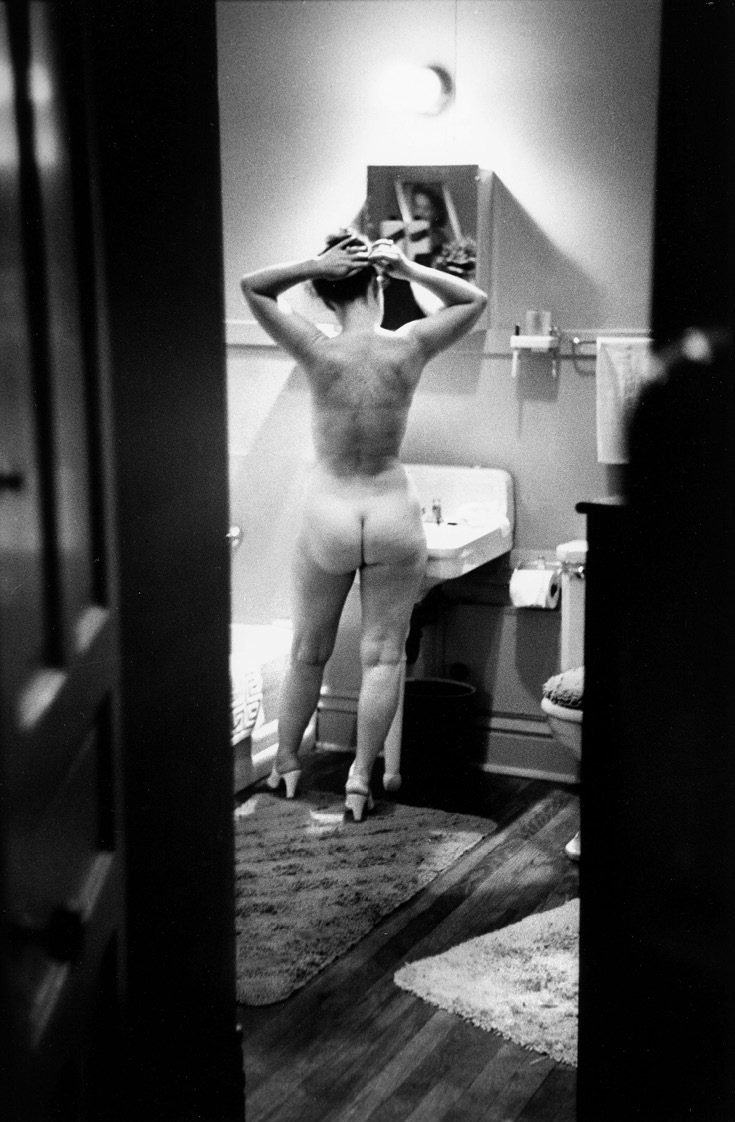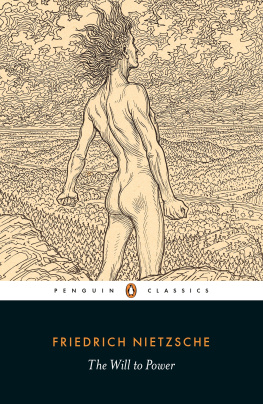Katie Roiphe - The Power Notebooks
Here you can read online Katie Roiphe - The Power Notebooks full text of the book (entire story) in english for free. Download pdf and epub, get meaning, cover and reviews about this ebook. year: 2020, publisher: Free Press, genre: Art. Description of the work, (preface) as well as reviews are available. Best literature library LitArk.com created for fans of good reading and offers a wide selection of genres:
Romance novel
Science fiction
Adventure
Detective
Science
History
Home and family
Prose
Art
Politics
Computer
Non-fiction
Religion
Business
Children
Humor
Choose a favorite category and find really read worthwhile books. Enjoy immersion in the world of imagination, feel the emotions of the characters or learn something new for yourself, make an fascinating discovery.

- Book:The Power Notebooks
- Author:
- Publisher:Free Press
- Genre:
- Year:2020
- Rating:4 / 5
- Favourites:Add to favourites
- Your mark:
- 80
- 1
- 2
- 3
- 4
- 5
The Power Notebooks: summary, description and annotation
We offer to read an annotation, description, summary or preface (depends on what the author of the book "The Power Notebooks" wrote himself). If you haven't found the necessary information about the book — write in the comments, we will try to find it.
The Power Notebooks — read online for free the complete book (whole text) full work
Below is the text of the book, divided by pages. System saving the place of the last page read, allows you to conveniently read the book "The Power Notebooks" online for free, without having to search again every time where you left off. Put a bookmark, and you can go to the page where you finished reading at any time.
Font size:
Interval:
Bookmark:


ALSO BY KATIE ROIPHE
The Violet Hour
In Praise of Messy Lives
Uncommon Arrangements
Still She Haunts Me
Last Night in Paradise
The Morning After

F REE P RESS
An imprint of Simon & Schuster, Inc.
1230 Avenue of the Americas
New York, NY 10020
www.SimonandSchuster.com
Copyright 2020 by Katie Roiphe
All rights reserved, including the right to reproduce this book or portions thereof in any form whatsoever. For information address Free Press Subsidiary Rights Department, 1230 Avenue of the Americas, New York, NY 10020.
First Free Press hardcover edition March 2020
FREE PRESS and colophon are trademarks of Simon & Schuster, Inc.
Interior Illustrations by Katy Hunchar
Grateful acknowledgment is made to:
Alfred A. Knopf for permission to quote an excerpt from Bicenntenial, copyright 2014 by Dan Chaisson.
The Art Shay estate for permission to print the Simone de Beauvoir photograph.
For information about special discounts for bulk purchases, please contact Simon & Schuster Special Sales at 1-866-506-1949 or .
The Simon & Schuster Speakers Bureau can bring authors to your live event. For more information or to book an event contact the Simon & Schuster Speakers Bureau at 1-866-248-3049 or visit our website at www.simonspeakers.com.
Interior design by Carly Loman
Jacket design by Jackie Seow
Jacket background by Imnoom/Shut Terstock
Author Illustration Courtesy of Katy Hunchar
Library of Congress Cataloging-in-Publication Data is available.
ISBN 978-1-9821-2801-2
ISBN 978-1-9821-2803-6 (ebook)
Women in power are seen as breaking down barriers, or alternatively as taking something to which they are not quite entitled.
MARY BEARD
I read Doris Lessing in literature class and that depressed the shit out of me too. I just hated reading work by women or about women because it always added up the same. Loss of self, endless self-abnegation, even as the female was trying to be an artist, she wound up pregnant, desperate, waiting on some man.
EILEEN MYLES

SIMONE DE BEAUVOIR, CIRCA 1950
For Tim
Please note that when I use the word power in these pages I dont mean geopolitical power, or socioeconomic power or electoral power, or power in the broad Foucauldian sense. This is not a book about the vast inequalities and violence of the world we live in. It focuses on little things: the dynamics between people (friends, strangers, intimates) in a room. These dynamics reflect larger power relations, to be sure, but those are not my subject here.
In addition, please note that I have, in places, entirely altered or tinkered with names and/or identifying details of people referred to in these pages.
I began these notebooks in a time of upheaval a little over two years ago. They feel like nothing else I have ever written.
My usual ways of being in the world were no longer working. My theories and interpretations were wrong or inadequate. In other words: one of those rare, disconcerting moments of openness we are sometimes forced into.
In my published writing, I took stands. I made arguments. But in the very early morning, before anyone was awake, I was working on these notebooks. Here I wasnt arguing anything. Here I was circling, contradicting myself. Here I was keeping a secret record of the uncertainties, doubts, shifts.
I had been writing about women and power all of my adult life, maybe even before my adult life. A not-entirely-friendly review said one of my books was infused with what has long obsessed her: the power dynamics of sex and love. My whole life I had been making arguments about those dynamics, and my positions were roughly consistent, but my own experience with power was oddly untouched by these arguments. I had never gotten close to that experience.
The thing that I kept coming back to in these notebooks, the thing that was getting me out of bed before dawn, lay hidden under the particulars of my work life or love life or life as a mother, which are no more or less interesting than anyone elses. These particulars seemed to suggest more ambivalence, more ambiguity, more fear surrounding the issue of powerthan my published writing acknowledged. So in darkness, for myself, I tried to work on the problem.
In these early mornings, I found myself revisiting scenes from my life and the lives of women I knew, even if I didnt quite know why. I recorded stray observations, unresolved obsessions, passages from books I was reading. I excavated notebooks from my teenage years because the problem of power had been with me even then.
I recognized in myself an unseemly will to power, a possibly unnatural fascination with it, an aspiration toward it. But I also saw myself, at times, failing to hang on to a decent amount of it. I saw myself sometimes wanting to give it up or get rid of it or hide it in surprising ways.
It sometimes seemed to me that we like the idea of powerful women, but we dont like powerful women themselves. I wanted to get at the hidden ways that we internalize that contempt. The ways we deflect competitiveness or resentment, but they are hard to measure or document.
In my regular life, I wrote books about writers lives (and loves and deaths) that took years of research. While I was working on these books, I spent long afternoons poring through letters and diaries. I was looking for something that could help me, but this work was too slow and meticulous for what I needed now.
Instead, I obsessed over writers whose lives seemed to hold out some sort of template even if it upended certain expectations I had for successful women. Why did Mary McCarthy have to ask her husband for a nickel to make a telephone call? Why did Sylvia Plath fall in love with, as she put it, the only man who could boss her around? Why did Edith Wharton,at the height of her success, write to her faithless lover, I dont want to winI want to lose everything to you!? I collected the details here in the hope that they would help me later.
Here is a subject that I kept coming back to: women strong in public, weak in private. Is there a particular kind of abjection that some of us are drawn to, participate in, possibly romanticize, even though nothing about our external lives necessarily suggests it? If so, is there a way out of it? In the notebooks the questions multiplied. How to be someone who has to win every argument with a man and also sometimes likes the idea of being overpowered. How to build a whole world inside the contradictions.
The notebooks required me to do things I otherwise never let myself do: admit weakness, give up control, acknowledge doubt, have no idea where I am going.
In these pages, I often had the feeling of being at sea or overwhelmed. In normal life, I rush to resolution. I organize my thoughts. I make points. I care about being right. But with the notebooks, it felt like I was laying out pieces of a puzzle. Or like I was taking notes for some later time when I would see the patterns, when the arc would announce itself, the messages become clear.
Font size:
Interval:
Bookmark:
Similar books «The Power Notebooks»
Look at similar books to The Power Notebooks. We have selected literature similar in name and meaning in the hope of providing readers with more options to find new, interesting, not yet read works.
Discussion, reviews of the book The Power Notebooks and just readers' own opinions. Leave your comments, write what you think about the work, its meaning or the main characters. Specify what exactly you liked and what you didn't like, and why you think so.






